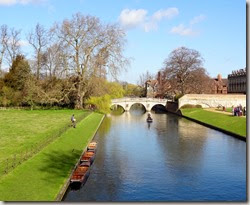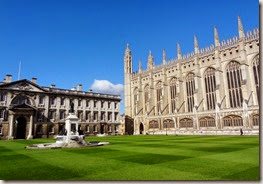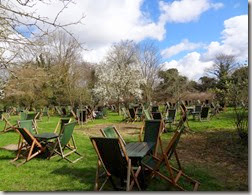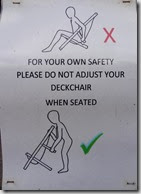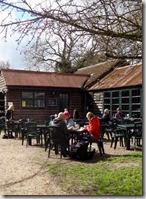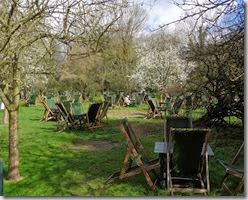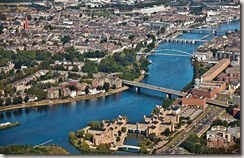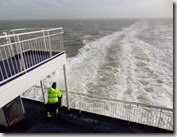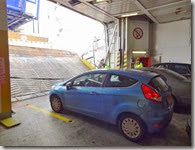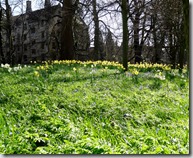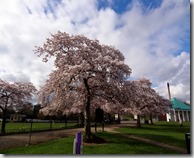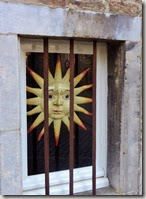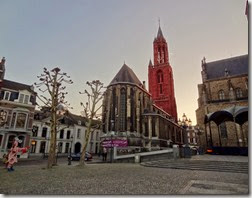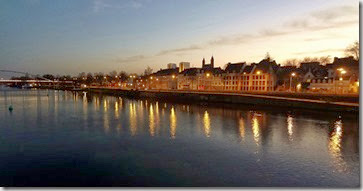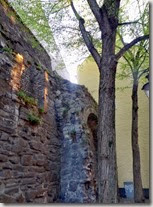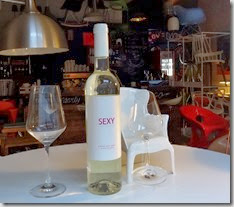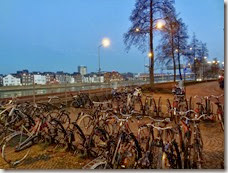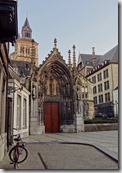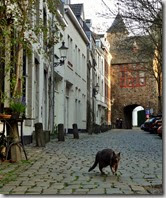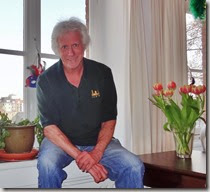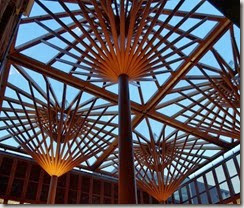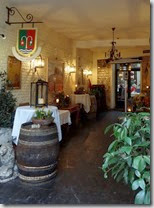
St. Patricks Day was quiet in Maastricht. Despite the sizable Catholic presence who might honor the Saint, the streets were silent, the restaurants empty, and only the occasional green-hatted reveler roamed the cobblestones. I walked down to St. Amorsplein (named for the pilgrim monk Amor of Aquitaine, depicted in a long robe with hood, a pilgrim's staff, and a travel bag: the quintessential expat) for a late biertje.
Absent the expected singing and toasting of Chicago-style St Patrick’s day, I ordered some bitterballen, sipped my drink, and browsed scribbled dichotomies that I’d transcribed into Evernote.
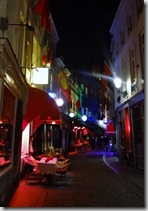 Build vs. Defer the future: I hold tightly to a dream of what I want my future to become. I believe there will be a day when the products reach market and the businesses succeed and exit, when temporary residency permits and shared rental housing give way to coastal property in a committed relationship, when travel and leisure come into more favourable balance with striving ambition.
Build vs. Defer the future: I hold tightly to a dream of what I want my future to become. I believe there will be a day when the products reach market and the businesses succeed and exit, when temporary residency permits and shared rental housing give way to coastal property in a committed relationship, when travel and leisure come into more favourable balance with striving ambition.
I’m prepared to sacrifice to achieve the dream. But if I’ve learned anything, it’s that deferring everything until success is certain likely leaves me with shreds of nothing.
I have come to realize the importance of attending to the journey as well as the destination.
Its important to continuously build tangible elements, assets as well as experiences, just like I do with startups and residency.
So, as the business regains the promise it held 18 months ago, I’m committed to building my future, not postponing one. This translates into engagement with long-standing questions of passports, where to live, how to balance personal and professional commitments, strengthening personal and family relationships, and making the most of expat opportunities.
It still begs the question of whether the life that I’ve chosen, the life I love, is one that anybody else would find appealing. But, in building it to tangible reality, there’s at least the opportunity to find out.
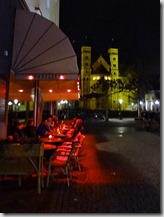 Know vs. Believe what is factual: I was thinking about how well I understand events in my own life, whether I confuse facts with beliefs? I have certainty about events that I witnessed, where I have physical evidence, or where causal laws of nature hold. I concede that I am less grounded about events that I’ve only heard about, intuitions about other people, or inferences from observed consequences.
Know vs. Believe what is factual: I was thinking about how well I understand events in my own life, whether I confuse facts with beliefs? I have certainty about events that I witnessed, where I have physical evidence, or where causal laws of nature hold. I concede that I am less grounded about events that I’ve only heard about, intuitions about other people, or inferences from observed consequences.
The Dutch distinguish two kinds of knowledge: denken (to know by reflection) and weten (to know by experience). While weten are, for me, unquestionably true, I am learning that only direct participants can share that certainty. Similarly, my imagination and intuition, my denken, can also convince me of truths that have no actual basis in fact, certain of propositions that others know are false.
I’m not sure how to subjectively recognize the difference, except to force myself to examine assumptions reflectively or in conversation. But that degree of open-mindedness, critical thinking, passionate objectivity, and suppressing fears is really hard to do consistently.
 Past vs. Future on my mind: Amit Sood observes that the mind operates in two modes: a focused, attentive mode immersed in external experience, and an internal wandering mode associating past and future events. The former attends and accomplishes; the latter imagines what-ifs, floats up purposeless dialogs, and connects unrelated facts, usually with some negative bias. Research, sadly, suggests that we spend the majority of our thinking time in aimless internal idling.
Past vs. Future on my mind: Amit Sood observes that the mind operates in two modes: a focused, attentive mode immersed in external experience, and an internal wandering mode associating past and future events. The former attends and accomplishes; the latter imagines what-ifs, floats up purposeless dialogs, and connects unrelated facts, usually with some negative bias. Research, sadly, suggests that we spend the majority of our thinking time in aimless internal idling.
This isn’t necessarily bad: the mind should be teasing out lessons and anticipating threats. But, as Steven Metcalf recently observed, obsessive rumination about the past is the basis of depression, while excessive worry about the future forces anxiety. I think that this is a marvelous distinction, and useful in assessing how I think about significant events, and whether I allow feelings and consequences to colour my everyday life.
I do think a lot about the past. I embrace my experiences, good and bad, accept my feelings as valid, make peace with myself. Life’s direct lessons need not rationalized, suppressed, or converted to something that they are not.
But I don’t ruminate over it: I worry most about the future. What are the right lessons to draw, the necessary changes to make, the feelings that I want to recapture? I describe these with reference to the past, but my intention and energy is for the future.
The Shrink and Sage argue that discontent and worry are actually a positive, the wellspring of Motivation. And Motivation drives the definition of goals and confidence in achieving them. Together, they give direction and purpose in life.
The trick, then, is again balans en grenzen, boundaries and equilibrium and daily necessity of holding a kind thought for the present moment and my traveling companions.
=======
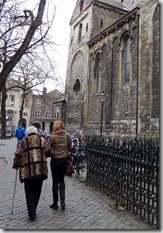 I admit, sipping my biertje, that there is more than a little sophistic naval-gazing in my taking these three propositions out for a little exercise on St. Patrick’s Day. Yet each is relevant to major questions that I still try to sort as I approach 60:
I admit, sipping my biertje, that there is more than a little sophistic naval-gazing in my taking these three propositions out for a little exercise on St. Patrick’s Day. Yet each is relevant to major questions that I still try to sort as I approach 60:
- How do I most effectively lead my life, rooted in opportunities and tensions of being a long-term expat, ambitious entrepreneur, and committed partner?
- How well do I, can I, understand reality, knowing that I am immersed in different cultures, confounded by poor translations, and confronted with incomplete knowledge?
- How can I improve my work and build my relationships, trusting both my understanding of myself and my intuition about others?
There is no place so awake and alive as the edge of becoming. -- Sue Kidd
Labels: Philosophical musings
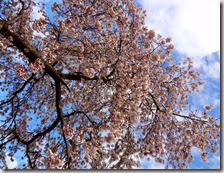 The trees are coming into bud throughout East Anglia. Flowers emerged a month ago, far too early according to local gardeners, worried about the effects on birds and insects. At the College, the gardens have been planted and the lawns seeded. The punts have returned to the Cam as the floodwaters recede, still too cold to take a boat out. But it was a nice Saturday for walking the city center and the Colleges, then enjoying a conversational dinner at Effes.
The trees are coming into bud throughout East Anglia. Flowers emerged a month ago, far too early according to local gardeners, worried about the effects on birds and insects. At the College, the gardens have been planted and the lawns seeded. The punts have returned to the Cam as the floodwaters recede, still too cold to take a boat out. But it was a nice Saturday for walking the city center and the Colleges, then enjoying a conversational dinner at Effes.
